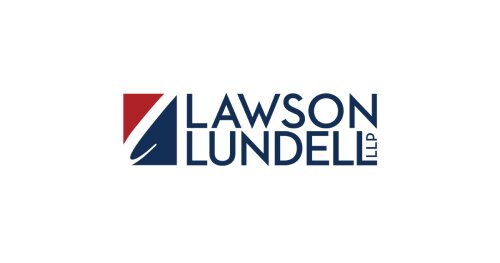Best Real Estate Lawyers in Yellowknife
Share your needs with us, get contacted by law firms.
Free. Takes 2 min.
Free Guide to Hiring a Real Estate Lawyer
List of the best lawyers in Yellowknife, Canada
Canada Real Estate Legal Articles
Browse our 1 legal article about Real Estate in Canada written by expert lawyers.
- Buying Property Abroad as a Canadian: A Legal Checklist
- Real estate law in Canada is mostly provincial, so rules on land registration, landlord-tenant rights, condos/strata, and land transfer tax differ by province and territory. For a typical home purchase, budget roughly 2% to 5% of the purchase price for closing costs in addition to your down payment, including land... Read more →
About Real Estate Law in Yellowknife, Canada
Real estate law in Yellowknife, Canada, is an intricate field that encompasses a wide range of activities from buying and selling properties to leasing and zoning. As the capital city of the Northwest Territories, Yellowknife has a unique set of circumstances that affect its real estate market, including its status as a northern city with diverse land types and jurisdictional considerations. Real estate in Yellowknife involves not only typical residential properties but also commercial and industrial spaces, all of which are governed by local and territorial regulations.
Why You May Need a Lawyer
There are various instances wherein individuals and businesses might need to seek legal advice in the field of real estate in Yellowknife. Common situations include:
- Property Transactions: Whether you're buying or selling, real estate lawyers ensure the transaction complies with all legal requirements and that your interests are protected.
- Lease Agreements: Legal expertise can help negotiate terms and settle disputes regarding residential or commercial leases.
- Zoning and Land Use: Lawyers assist in understanding and complying with local land use bylaws, and in applying for zoning variances or addressing disputes.
- Title Issues: Resolving disputes over property ownership and clearing title of any defects or liens require legal intervention.
- Development and Construction: For new developments or construction projects, legal guidance ensures compliance with local building codes and permits.
Local Laws Overview
Yellowknife real estate law is governed by a combination of local, territorial, and federal regulations. Key aspects include:
- Land Titles: Managed by the Northwest Territories Land Titles Office, which records and maintains all land ownership documents.
- Planning and Zoning Bylaws: These determine land use in Yellowknife, guiding residential, commercial, and industrial development.
- Environmental Regulations: Real estate transactions must comply with environmental protection laws, particularly important in Northern regions with sensitive ecosystems.
- Residential Tenancies Legislation: Governed by the Residential Tenancies Act which covers the rights and obligations of landlords and tenants.
Frequently Asked Questions
What is the process for buying a home in Yellowknife?
The process generally involves making an offer, conducting due diligence including property inspection and title search, and closing the transaction with the transfer of funds and title.
Do I need a lawyer to buy or sell property?
While not legally required, having a lawyer is highly recommended to ensure all legal documents are correctly prepared and potential issues are addressed.
What should I be aware of when renting property in Yellowknife?
Understand the Residential Tenancies Act which outlines the rights and responsibilities of both landlords and tenants, including rent increase limits and notice periods.
What are the common zoning categories in Yellowknife?
Zoning categories typically include residential, commercial, and industrial, each with subcategories and specific regulations on land use and construction.
How can I resolve a property boundary dispute?
Resolving such disputes often involves reviewing deeds, surveys, and potentially mediation or court action if an agreement can't be reached.
What is a title search and why is it important?
A title search verifies the legal ownership of a property and ensures there are no encumbrances or claims against it, preventing potential legal issues.
Are there specific environmental regulations I should be aware of?
Yes, all real estate activities must comply with environmental laws to protect the region's natural resources, including potential restrictions on development.
How does the Land Titles Office function?
The office maintains official records of land ownership, issues land titles, and ensures transparency in the real estate market.
What happens if a property transaction falls through?
If properly structured, agreements may include conditions that allow all parties to exit without penalties, though legal advice is crucial if disputes arise.
Can I subdivide my land in Yellowknife?
Subdivision is possible but subject to local bylaws and often requires approval from municipal authorities, with consideration of zoning and infrastructure availability.
Additional Resources
Several resources can assist those seeking legal advice in real estate in Yellowknife:
- Northwest Territories Law Society: Offers legal information and can help locate a real estate lawyer.
- Government of Northwest Territories: Provides information on land use planning, environmental assessments, and housing resources.
- Yellowknife City Hall: For information on zoning bylaws, permits, and local government regulations.
Next Steps
If you need legal assistance in real estate, consider the following steps:
- Research and select a qualified real estate lawyer, considering their experience and client feedback.
- Prepare all necessary documentation and questions regarding your legal matter to discuss with your lawyer.
- Schedule a consultation to understand your legal position, available options, and next actions.
- Follow your lawyer's advice to ensure compliance with all legal requirements and protect your interests throughout the process.
Lawzana helps you find the best lawyers and law firms in Yellowknife through a curated and pre-screened list of qualified legal professionals. Our platform offers rankings and detailed profiles of attorneys and law firms, allowing you to compare based on practice areas, including Real Estate, experience, and client feedback.
Each profile includes a description of the firm's areas of practice, client reviews, team members and partners, year of establishment, spoken languages, office locations, contact information, social media presence, and any published articles or resources. Most firms on our platform speak English and are experienced in both local and international legal matters.
Get a quote from top-rated law firms in Yellowknife, Canada — quickly, securely, and without unnecessary hassle.
Disclaimer:
The information provided on this page is for general informational purposes only and does not constitute legal advice. While we strive to ensure the accuracy and relevance of the content, legal information may change over time, and interpretations of the law can vary. You should always consult with a qualified legal professional for advice specific to your situation.
We disclaim all liability for actions taken or not taken based on the content of this page. If you believe any information is incorrect or outdated, please contact us, and we will review and update it where appropriate.
Browse real estate law firms by service in Yellowknife, Canada
Yellowknife, Canada Attorneys in related practice areas.









